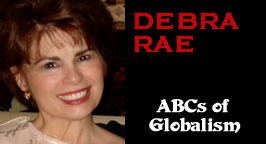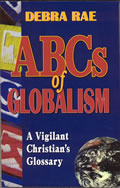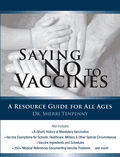THE
LOST ART OF CRITICAL THINKING
PART 1
By
Debra Rae
August 29, 2010
NewsWithViews.com
Part 1, Critical Thinking, A Broad Stroke
Contrary to popular application, the “critical” in critical thinking doesn’t mean categorizing political opponents as “idiots”! Far from it.
Thinking reasonably, reflectively, and deeply is an essential (that is, critical) skill. Its focus determines what one believes—and how he acts out those beliefs. For good reason, the God of the Old Testament implores His own to “come, let us reason together.”[1] Note that He doesn’t compel them to rally for the purpose of contentious wrangling.
To qualify as a reasoned critical thinker, rather than a squabbler, one considers alternatives and their counterexamples; moreover, he explores consequences. That is to say, his posturing is proactive, not reactive.
Significantly, a critical thinker learns from history and from his own mistakes so as not to repeat missteps unnecessarily.
That said the art of critical thinking springs from basic knowledge. While remaining open to new information, a critical thinker evaluates his sources with due diligence, applied discernment, and careful circumspection. He is not a metaphorical lemming destined to suffer the fate of those who go along unquestioningly with fashionable partisanship, trendy enlightenment, or fantastical delusions.
Fallacies of Logic
Rightful reflection involves communion with one’s own heart, mind, and conscience. In the process of deliberation, one detects fallacies (meaning “deceit”). Examples include false analogies, presumptive generalizations, personal attacks, distractions, ambiguities, and the like—all used commonly and underhandedly to sway popular opinion. Whether distinguished as “formal” or “informal,” all fallacies are dangerous when used by, or in the presence of, those who do not fully understand them.
The wily opportunistically intimidate unwary counterparts with strategies of deceit; only clear thinkers avoid traps strategically designed to ensnare them. They do this by monitoring their own thought processes (called meta-cognition) while, at the same time, they exercise well-reasoned inductive and deductive thinking patterns.
The Thought Ladder
Master educators understand that folks read and think at overlapping levels. The most basic level of thinking is literal. At this rung of the thought ladder,[2] one applies concrete thinking skills that deal with facts. He acquires and maintains rudimentary knowledge accurately and fluently while, at the same time, answering basic what, where, when, and who questions.
Abstract thinking expands upon basic knowledge. It is both interpretive and critical in that it generalizes and transfers knowledge to new settings or responses. The abstract thinker answers questions like “What is meant by what was said?” or “How does this fit with what I already know?”
Creative thinking extends knowledge by elaborating, adapting, and capitalizing on it. Now, the question posed is “What can I do with this information?” As a result, the new concept (or complex of concepts) shapes one’s beliefs and inspires his actions.
Applying these three thinking levels—literal, abstract, creative—guides aright study within all fundamental fields—i.e., political, religious, educational, scientific, medical, military, technological, cultural, social, philosophical, and economic. Failing to do so misses the mark and invites grave consequences.[3]
Evading Critical Thinking
To disregard basic knowledge, its expansion and extension, is to float adrift in the sea of life and to suffer the penalties of cognitive instability. It behooves one, therefore, to engage critical thinking skills in voting, worshipping, relating, exploring a career path, investing, and the like. Otherwise, he subjects himself to the system of involuntary servitude called peonage, which in effect elevates the State as supreme and demotes citizens to mere pawns of “collective opinion.”
Make no mistake. Those bent upon transforming our entire culture do so more through the brain than in the battlefield. Their cry for “transformation” may resonate as a purr but can come with a snarl and a bite. Already UNESCO pushes the right kind of tolerance and lifelong education for global cosmic citizenship. Through one-stop social clinics, school-to-work, and cradle-to-grave learning programs, educrats mold “human resources” to their liking.
Concrete Thinking Skills
Today’s interdisciplinary approaches in education result in fewer courses presented under the guise of “thematic teaching.” In short, facts and knowledge—namely content—are deemphasized. More often than not, “process” trumps “product.” By eliminating standardized tests and traditional, subject-based curriculum, educrats freely advance a social agenda that is both radical and indulgent.
Transformational learning incites “raising a ruckus” by “rethinking schools.” Forget the facts. Victimization theories hook our youth to hard-core action. Void of verifiable facts, revisionist history serves as its catalyst; and Marxism assumes center stage in directing the social revolution at hand.
In support of youth self-expression, organizations as the Daughters Sister Foundation (underwritten by the Pride Foundation) educate, inspire, and empower our young people toward realizing a new one-world order bereft of ostensibly obsolete sovereignty, traditionalism, and capitalism.
Abstract Thinking Skills
To promote campus-wide dialogue and “a shared intellectual experience,” seventy-nine out of one hundred of our top American universities ask their incoming freshmen to read one designated book over the summer. The exercise promises to stimulate abstract thinking by posing questions like “What is meant by what was read?” or “How does this fit with what I already know?”
Problem is participating students read no works of classical antiquity, no classical works of Christian or Jewish thought, science, or history. Instead, incoming freshmen typically read books that feature “quick impressions, snappy ideas, or empathetic evoking of misfortune.” Some even read comic books (called “graphic novels”) that tend to be “short, caffeinated, and emotional” in words of NAS President Peter Wood.[4]
Speaking of which, the National Association of Scholars (NAS) examined some 180 books selected by 290 participating schools only to find that many choices relaxed into liberal biases and did little to stretch demands of college-level study.
Rather than foster mastery of fact acquisition, fluency, maintenance, expansion, and reasoned application, students instead read emotive books featuring the “politics of change” (psycho-politics) “with a distinctly disaffected view of American society and Western civilization.”[5]
Creative Thinking Skills
In review, the creative thinker asks, “What can I do with this information?” Then, he generates a new concept (or complex of concepts) serving to shape his beliefs for success. If you think about it, the American Dream demands elaborating, adapting, and capitalizing on knowledge while moving forward entrepreneurially. Clearly, creative thinking is at the heart of America’s triumph as a nation.
This is especially true when rule of law, individual effort, and fair dealing lead the way. History reveals that America’s founding fathers embraced and implemented tried-and-true, transcendent ideals of law and liberty. These they drew from the ancient history of Israel, as a people, coupled with experiences of the New Testament church. In short, they gave heed to and then learned from the past—morally, ethically, and religiously.
By way of example, our founders understood that the “rule of the laity” wars against rule of law. When citizens (the “laity”) overlook the latter to do what is right in their own eyes, they fall prey to idolatry, chaos, violence, collectivism, and/or complacency.
In God’s economy, a measured scale of divine equity ensures corporate well-being, but partiality nurtures oppression. Consider the ant and its ways. Governed by personal integrity and responsibility, not force, the proverbial ant provides amply for itself. In contrast, the root word for sluggard means “to lean.” So-called “leaners” look to Big Brother for life’s provisions.[6] Their lot in life is perpetual servitude and want.
| Subscribe to the NewsWithViews Daily News Alerts! |
Birth of a Blessed People
Bombarded with intimidation, oppression, and deceit, our founders rose to the challenge, thought critically, and gave themselves wholly to belief and actions to which they pledged their lives, fortunes, and sacred honor. For this, they paid dearly. As a result, we are a blessed people. To restore America and secure like blessings for our progeny, we can do no less than they. For part two click below.
Click here for part -----> 1, 2, 3,
Footnotes:
1,
Isaiah 1:18.
2,
Curriculum Letter No. 58, Department of School Services and Publications,
Wesleyan University, Middletown, Connecticut.
3,
Debra Rae. “The Sin Factor.” ABCs of Cultural-Isms: Bible
Truth or Grave Consequences (2003): 9-17.
4,
Huffington Post (June 2010).
5,
Beach Books: What Do Colleges Want Students to Read Outside of Class?
(Thorne and Wood Report, 2010).
6,
Proverbs 6:6.












 Share
This Article
Share
This Article






